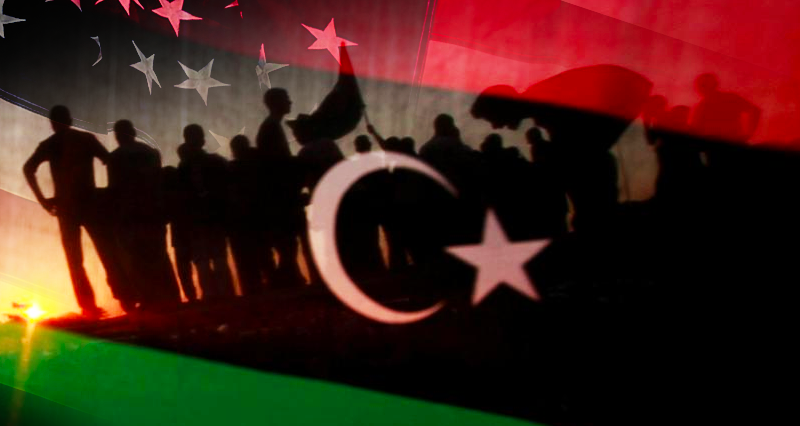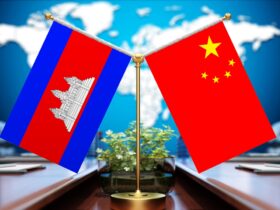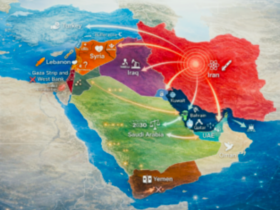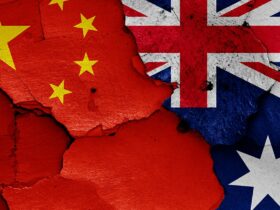Presidential elections in Libya have been postponed. According to media reports, a member of the High Electoral Commission of Libya said that holding elections as scheduled is a thing of the past.
The Libyan High National Election Commission said last Saturday, Dec. 11, that it could not name approved candidates out of the nearly 100 who applied because it was “keen to exhaust all means of litigation to ensure its decisions comply with issued judgments.”
Under Libyan law, however, candidates are entitled to two weeks of official campaigning after the publication of the final list. Since the publication of this list has been delayed, this requirement cannot be met. This decision made the postponement of the elections almost inevitable.
On the day the High Electoral Commission of Libya announced the postponement of the elections, Tripoli almost experienced a coup d’état. On the night of Wednesday to Thursday, December 16, the Al-Sumud group, controlled by militia leader Salah Badi from Misurata, blocked the headquarters of Libya’s National Unity Government and the Ministry of Defense building in Tripoli. The country’s leadership was evacuated in advance to safety as soon as there were reports of an impending coup.
Salah Badi opposed any initiatives by Stephanie Williams, special adviser to the United Nations Secretary-General for Libya, who was recently appointed. He demands an end to “the plot against his homeland.”
Other sources claim that Libya’s rebellious militias oppose the decision of the GNU to dismiss Abdulbasit Marwan as commander of Tripoli’s military zone.
In any case, the situation in Tripoli is not conducive to elections.
The real reasons for the postponement
The root of the problem lies on a completely different level. If the Libyans had been allowed to resolve the internal political conflict themselves and hold elections in peace, there would have been not even a discussion to postpone the elections.
The main reason for the postponement lies in the inability to compile a single list of candidates and hold elections in Libya according to unified rules. The High Electoral Commission and Libyan courts in different parts of the country have already tried to challenge the nomination of the most popular politicians, including Khalifa Haftar, Muammar Gaddafi and Libya’s interim prime minister, Abdul Hamid Dbeibah. Libya’s High Electoral Commission is working closely with the U.S. NGO International Foundation for Electoral Systems (IFES), through which the U.S. government tries to influence elections in other countries.
The main fluctuations that are causing discord in domestic Libyan politics have recently been provoked by the intervention of foreign forces. The U.S. and France are trying in every way to push their candidates through.
Stephanie Williams, special adviser to the United Nations Secretary-General for Libya, has recently become a key figure in this matter. After her work at the U.S. State Department and later at MINUSMA, she was one of the organizers of the Libyan Political Dialogue Forum in 2020, which was compromised by a corruption scandal as well as an apparent preference for figures close to radicals. At the same time, many of the Libyan participants then simply left the forum, which also shows the failure of an event, if it’s not organized in Libya and not by Libyans.
It is important that Williams was appointed to the position of special adviser on such a complex and ambiguous international line as the Libyan one, unprecedented, bypassing the approval of the UN Security Council.
More importantly, Williams was appointed to this post only a few weeks before the long-awaited elections in Libya. Yet she has already been engaged in a series of meetings since she arrived in Tripoli last Sunday.
Given Williams’ background, loyal to the Washington mainstream, she will be a mediator of American interests, pushing the appropriate candidates for the leadership of Libya.
Why is the U.S. so interested in destabilizing this election? It has to do with both a desire to recover lost political influence (since the assassination of Muammar Gaddafi in 2011), as well as with geopolitical pressure on the states concerned (including Turkey and pro-Turkish figures). Another reason is the desire to possess the rich resources of the North African region. Destabilization makes it easier to control all these spheres.
If Washington loses control of the elections in Libya, it fears the victory of candidates friendly to Russia, such as Saif al-Islam Gaddafi or LNA head Khalifa Haftar. However, pro-Turkish forces are also unacceptable to Washington.
Before Stephanie Williams came along, the situation was developing peacefully. Now Libya is on the brink of disaster again. Williams’ appearance has provoked the postponement of elections (which now may never take place at all) and an armed intervention in Tripoli. Under these circumstances, the U.S. will try to negotiate with Libya’s interim prime minister, Abdul Hamid Dbeibah, making him the de facto permanent leader of Libya. It should be remembered that he became provisional premier thanks to Williams and her Libyan Political Dialogue Forum.
The geopolitics of Libya
In addition, the U.S. interest in these elections lies in countering the Turkish strategy in the region. It is important for Washington to prevent the legally elected leaders of the country from gaining full legitimacy.
The Americans do not need either a pro-Turkish or pro-Russian Libya – and given that they are unable to promote order on the ground on their own (as shown by 2011 and the subsequent years of civil war), a simpler strategy for them is to stimulate chaos, further provoking a struggle between the West and the East of the country. Libya could then once again become a stronghold for terrorists. This, of course, in no way contributes to peace in the country on the eve of elections, as Williams promised.
Europe is keeping up with attempts to exert external influence on the country: for example, Germany announced 3 million euros to support the Libyan elections, and the European Union is allocating 1 million euros to support humanitarian programs in Libya.
It is very likely that with such influence of the U.S. and Western states, the long-awaited elections in Libya will not take place at all. Or, if they do, many states and groups inside Libya will not recognize them.
Unfortunately, we have to admit that there is at least minimal order in the territory under the control of Khalifa Haftar. But in the west of Libya and especially in Tripoli, as recent events have shown, there is no factually unified army, everything depends on the consent of individual warlords, who, if anything, can come into conflict with each other. And they can be bribed or brought to their side by outside forces.
If that happens, the divisions in Libya and the civil war will only worsen, and peace between fragmented institutions will not be achieved. They will not be able to unite the Libyans.
The only way out for a country torn by internal contradictions and external influence might be to refuse U.S. “help” and isolate itself from hostile external players. This includes France, Germany and other European leaders directly dependent on the situation in North Africa.
The situation in Libya can only be rectified by internal Libyan arrangements, and voluntary alliances – economic, cultural, and geopolitical – with neighboring countries, Turkey and Russia. At least such a partnership can be organized on a voluntary basis and with pragmatic goals, without being imposed from the outside, as in the case of the American Williams projects.
Russia – represented by Russian Foreign Minister Sergei Lavrov – has already said that on the eve of the elections in Libya, Moscow “strongly discourages” Americans and Europeans from trying to decide the fate of the Libyan people again. Turkey also reacted to the unstable situation in Libya. Turkish Foreign Minister Mevlut Cavusoglu said that Turkey is the key to peace and stability in Libya. A Libyan parliamentary delegation led by House Speaker-designate Fawzi Al Nuwairi paid an official visit to Turkey. But whether Turkey and Russia’s efforts can help avoid a negative scenario, time will tell.

















Leave a Reply